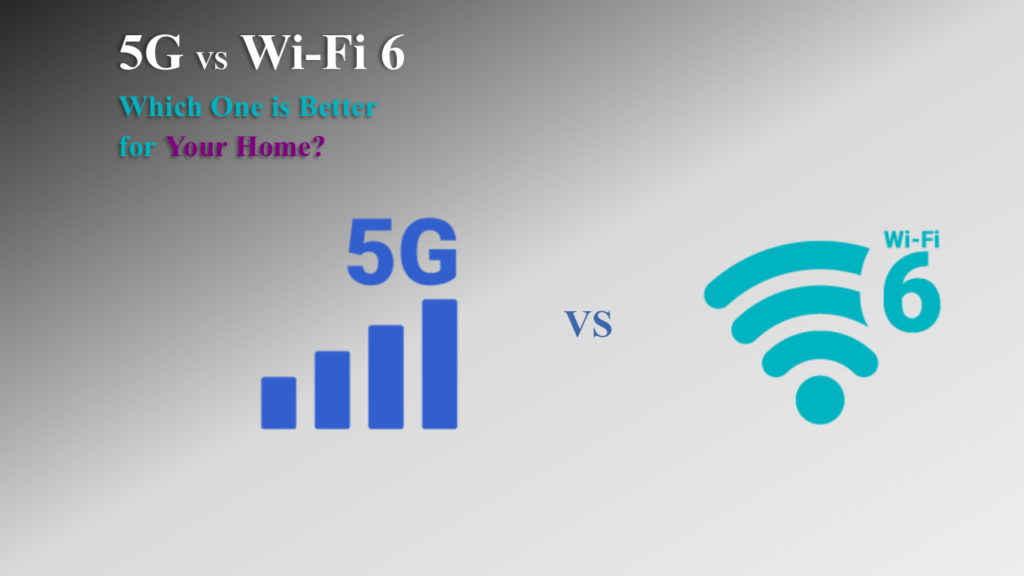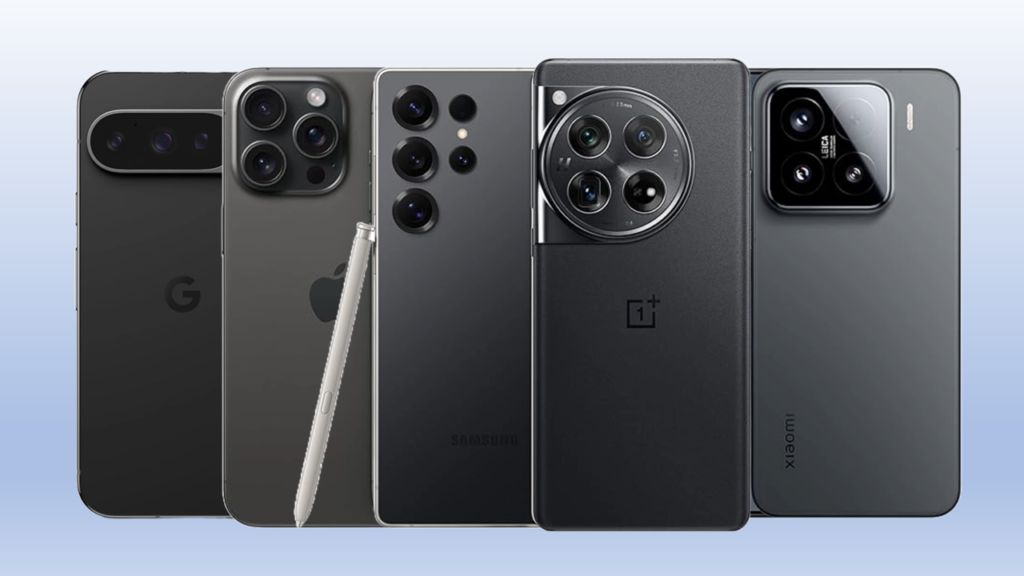Introduction
Hello everyone! Today, we are going to talk about two important technologies—5G and Wi-Fi 6. Both provide fast internet, but they work differently. Many people wonder which one is better for home use. Should you rely on 5G or upgrade to Wi-Fi 6? Let’s explore both technologies in simple words to help you make the right choice.
Table of Contents
What is 5G?
5G is the fifth generation of mobile networks. It provides high-speed internet using cell towers. Unlike older networks like 3G and 4G, 5G offers ultra-fast speeds, low delay (latency), and can connect many devices at the same time. Your phone, tablet, or even home internet can connect to 5G if your service provider offers it in your area.
Key Features of 5G:
- Faster Speeds: 5G can provide speeds of up to 10 Gbps.
- Low Latency: Response time is very fast, reducing lag.
- More Connections: 5G can support more devices at the same time.
- Wide Coverage: It can work over long distances.

What is Wi-Fi 6?
Wi-Fi 6 is the latest version of Wi-Fi technology, designed to provide faster and more efficient internet inside homes, offices, and public spaces. Unlike 5G, which depends on mobile towers, Wi-Fi 6 is powered by a router connected to a broadband service. It improves speed, reduces congestion, and supports multiple devices in one place.
Key Features of Wi-Fi 6:
- Faster Speeds: Wi-Fi 6 can provide speeds up to 9.6 Gbps.
- More Efficient: It can handle multiple devices at the same time without slowing down.
- Better Security: Wi-Fi 6 comes with improved security features.
- Energy Efficient: It uses less power, making it ideal for smart home devices.
Comparison: 5G vs. Wi-Fi 6 Now, let’s compare 5G and Wi-Fi 6 based on some key factors:
1. Speed
- 5G: Can reach speeds of up to 10 Gbps, but actual speeds depend on location and network conditions.
- Wi-Fi 6: Can reach speeds up to 9.6 Gbps, but speeds may slow down if multiple devices are connected.
- Winner: 5G is slightly faster in ideal conditions, but Wi-Fi 6 is more stable at home.
2. Latency (Response Time)
- 5G: Very low latency (1 millisecond or less), making it great for gaming and video calls.
- Wi-Fi 6: Also has low latency, but it depends on the internet provider.
- Winner: 5G is better for ultra-low latency applications like gaming.
3. Reliability
- 5G: Signal strength can vary depending on obstacles, weather, and network congestion.
- Wi-Fi 6: More stable because it is connected directly to a router.
- Winner: Wi-Fi 6 is more reliable for home use.
4. Coverage Area
- 5G: Works over long distances but needs strong network signals.
- Wi-Fi 6: Works within a specific area (like a home or office) and requires routers and extenders for better coverage.
- Winner: 5G for outdoor use, Wi-Fi 6 for indoors.

5. Number of Connected Devices
- 5G: Supports more devices but can slow down if too many are connected.
- Wi-Fi 6: Handles multiple devices efficiently without losing speed.
- Winner: Wi-Fi 6 for homes with many smart devices.
6. Cost
- 5G: Requires a 5G-enabled device and a 5G mobile plan, which can be expensive.
- Wi-Fi 6: Requires a Wi-Fi 6 router, but no monthly costs apart from internet service.
- Winner: Wi-Fi 6 is more cost-effective for home users.
Which One is Better for Your Home?
Now that we understand the key differences, let’s decide which is better for home use:
Choose Wi-Fi 6 If:
- You mostly use the internet inside your home.
- You have multiple smart devices connected at the same time.
- You want a stable and cost-effective internet connection.
- You prefer a secure private network without depending on mobile towers.
Choose 5G If:
- You need fast internet outside your home and on the go.
- You live in a remote area where broadband is slow or unavailable.
- You need high-speed internet without setting up a router and cables.
- You want to experience next-generation applications like cloud gaming and VR.
Future of 5G and Wi-Fi 6
Both 5G and Wi-Fi 6 will continue to improve and shape the future of internet connectivity. Many households might use both technologies together—Wi-Fi 6 for home and 5G for mobile use. Businesses, industries, and smart cities will benefit from 5G, while homes and offices will continue to rely on Wi-Fi 6.
Final Thoughts
Both 5G and Wi-Fi 6 are excellent technologies, but they serve different purposes. 5G is best for mobile users, while Wi-Fi 6 is better for home networks. If you work from home, stream videos, or use smart home devices, Wi-Fi 6 is the better choice. However, if you travel a lot and need fast mobile internet, 5G is the way to go.
By understanding their differences, you can make the best decision for your home internet needs!


Pingback: Realme 14 Pro 5G Review: Powerful Features, Stunning Design & Worth the Price? - TechGuide4you